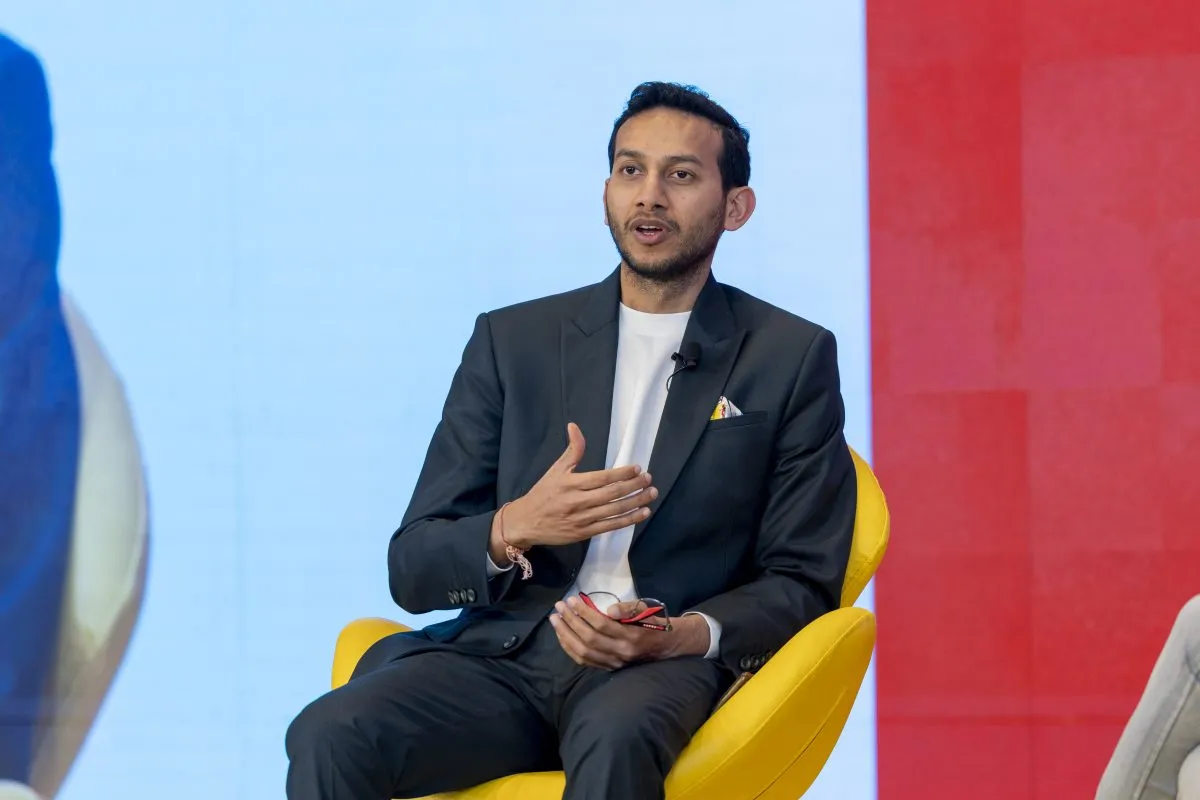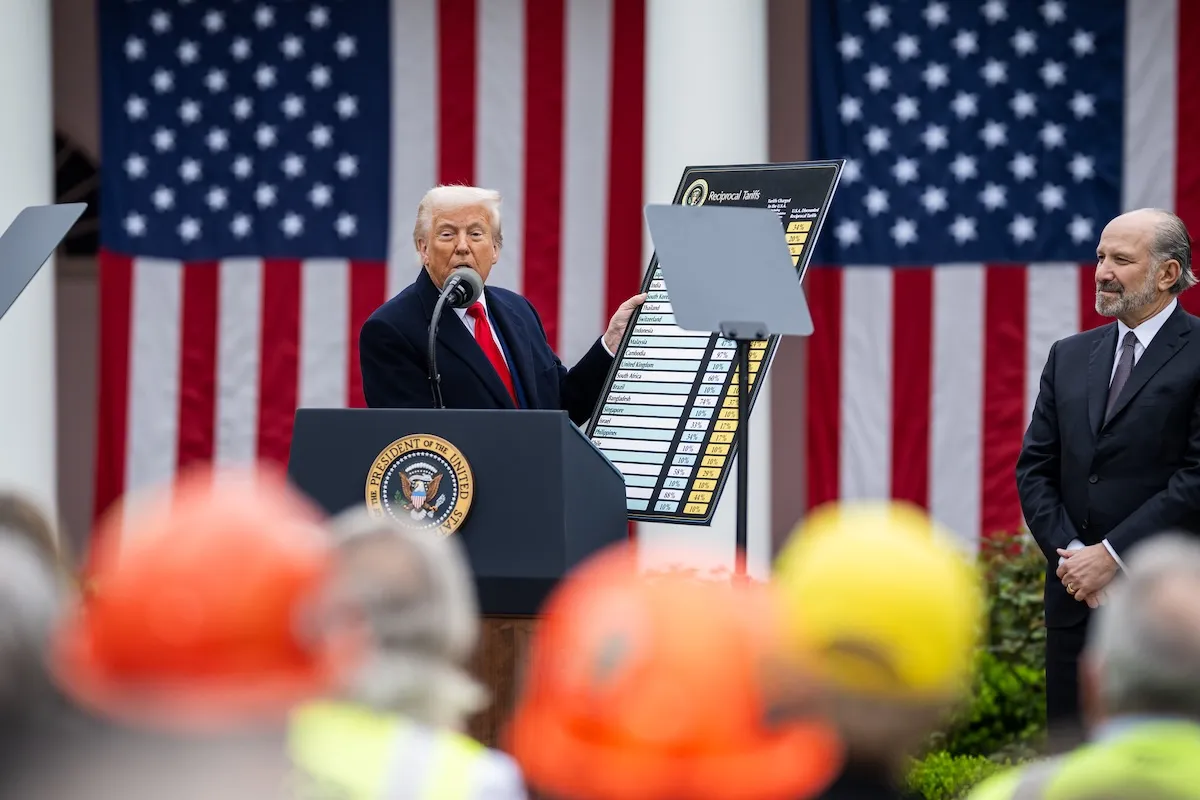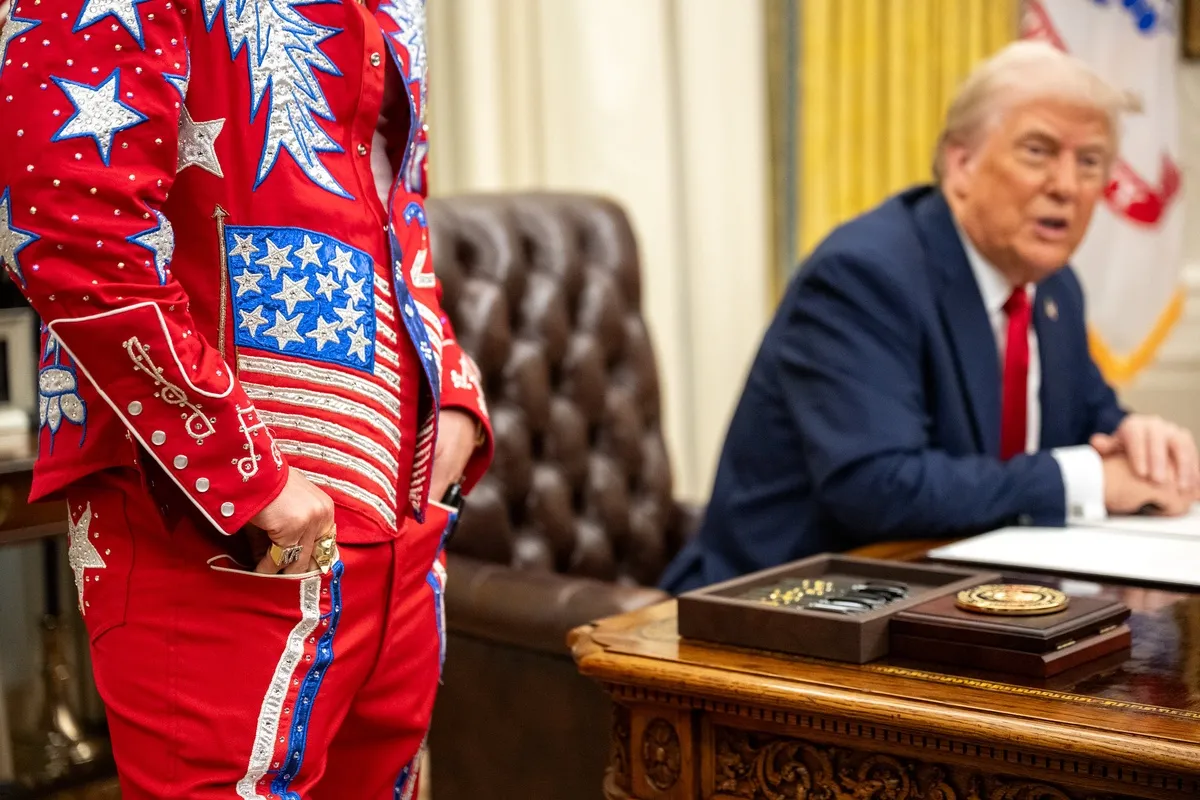Oral History of Online Travel: Barry Diller's Deals Built A Travel Empire
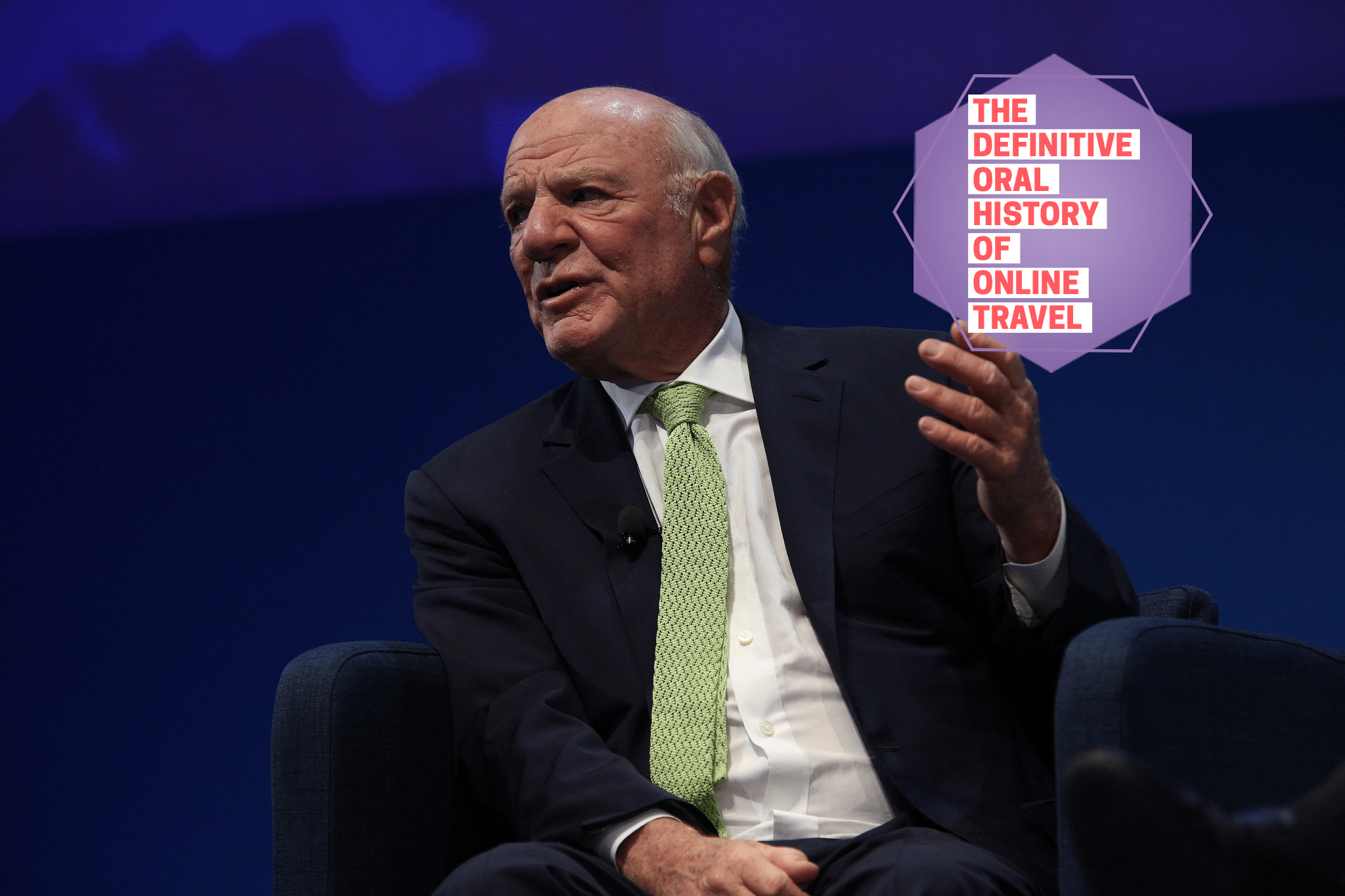
Skift Take
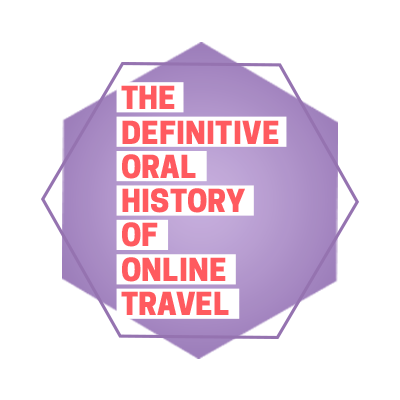 Skift launched its largest and most ambitious project yet, The Definitive Oral History of Online Travel, on June 1.
Skift launched its largest and most ambitious project yet, The Definitive Oral History of Online Travel, on June 1.
In nearly 40,000 words founders, CEOs, other executives and insiders tell a story in their own words about the creation of Internet giants such as Expedia, Priceline, Travelocity, Orbitz, TripAdvisor and more.
Not all of the interviews fit into the big story so we are publishing standalone stories that offer deeper insight into information we collected during the three-month research process.
In the annals of online travel, many people are familiar with how Jeffery Boyd, currently the interim CEO of the Priceline Group, turned around a teetering Priceline.com in the early 2000s, and in tandem with Glenn Fogel, head of worldwide strategy and planning, acquired Active Hotels in 2004, added on Bookings B.V. the following year, merged them to create Booking.com, and developed a $68 billion juggernaut.
Perhaps less well-known as a game-changing acquisition team is another duo, the tandem of IAC and Expedia chairman Barry Diller, and Expedia Inc. CEO Dara Khosrowshahi, who was the chief financial officer and deal-hunter during their pre-Expedia days from 1999 to 2005.
Consider the acquisitions they identified and made: Hotel Reservations Network (1999), Expedia (2002), Hotwire (2003), China's eLong, and TripAdvisor (both 2004).
Diller's IAC paired Hotel Reservations Network, which was renamed Hotels.com, with Expedia, and created a merchant-model hotel-booking powerhouse that made mega margins and earned the wrath of the hotel industry despite the fact that the Hotels.com and Expedia teams took awhile to get over their competitive enmity for one another.
To his credit, Diller and his IAC went ahead in early 2002 and acquired a controlling stake in Expedia when the flames of September 11 and the toll it took on the travel economy were still reflexive recollections. As Khosrowshahi remembers: "And we talked it over and I remember someone at the meeting – Barry and I still debate who it was – said, 'If there's no travel, there's no life. It's going to come back. Expedia is going to be an important part of it. So either the whole world is going to blow up or we're going to be OK and who knows how long it will take, but we'll be OK.'"
Diller and Khosrowshahi didn't catch all the deals -- and one in particular was an historic oversight. IAC's Expedia decided not to acquire Bookings.nl and thought TripAdvisor was too risky because it was supposedly too Google-dependent, but IAC indeed took TripAdvisor out of the clutches of Yahoo in 2004. The eLong deal, too, turned out to be a bust in China as it ended up being a huge financial drain and Expedia Inc. sold its stake in 2015.
From Skift's The Definitive Oral History of Online Travel, here are excerpts from what some of the key personalities say about Diller and Khosrowshahi during those early years.
Skift: In the telling of the history of online travel, Barry Diller probably doesn't get his proper notoriety. He bought up a bunch of really hot properties.
Cheryl Rosner, who was director of marketing at Kimpton Hotels and eventually became president of Hotels.com and Expedia Corporate Travel: Yeah. Barry and frankly, Dara. Really, the insight there was Barry's view that people were going to transact – or everything that they purchased on a day-to day basis – using the Web. And so if you look at IAC back then, and then moving forward, what you see is a bunch of, I guess for lack of a better term, verticals in different categories that say, as a consumer, here are the things I buy. IAC basically had a property for anything that you would buy or you would spend your money on, including — not only online travel – but dating. Because Match.com was part of the family back then. It lives obviously. When we sat in a room with 45 other leaders from the various properties, it was quite amazing back at the beginning that, yeah, you could see it all. You can see this is what people – if they're not buying it online today – this is what they will be buying online, whether it's products or services.
Brad Gerstner, former co-CEO of National Leisure Group (which became World Travel Holdings), founder of Room 77, former Orbitz Worldwide board member and founder Altimeter Capital: [Cruise and vacation-packager National Leisure Group] started negotiations with Expedia. Then we meet Diller; and Dara Khosrowshahi had bought a company for Barry Diller in 1999 called Hotel Reservations Network. Remember Barry's background: He owned the Home Shopping Network so he understood this idea that you could have a phone number that people could call and you have a catalog or you have television to drive the demand and everybody calls this phone number, and you have real scale economies and commerce. Using that same model he sees this company called HRN, or Dara sees it, and they had 1-800-HOTELS. Hey, you don't know a travel agent call 1-800-HOTELS. We'll get you a better deal on hotels. That was the business.
We're talking about the future Hotels.com, but at the time it was all telephone-based. [Bob] Diener and [David] Litman those guys are amazing entrepreneurs but they weren't at the time necessarily in the technological vanguard in the way that Rich Barton [Expedia founder] was. But Dara had bought the company for Diller and it was exploding, it was growing so fast. Dara understood that this was all going to move online and this company was just going to be huge ...
A Dreaded Phone Call From IAC
Tim Poster founded hotel-seller Las Vegas Reservation Systems, which changed its name to Travelscape in 1998, and received a phone call from IAC's Dara Khosrowshahi in October 1999 that both parties likely recall very well.
Poster: We were going to do a deal with Barry Diller. This part wasn't public, but now who cares? They were going to buy us. I think this was in the very early days of InterActiveCorp. They made an offer to buy us for $120 million. You've got to remember at the time that was like all the money in the world to me. We didn't have any debt; my partner and I owned the whole thing. We said, 'Yes.'
They had people out here in our offices for months, like counting every paper clip. It was just one of those grueling legal things. Every single thing was a fight over everything. It was like four months of that. My partner Tom [Breitling] and I, we were supposed to go to New York after this was all done, and we had spent like $300,000 or $400,000 on legal fees.
Let's say we were supposed to be in New York on Wednesday, well, Tuesday afternoon I get a call from the guy who is now the CEO of Expedia, Dara Khosrowshahi. He called me and he said, 'Listen, I got to tell you, I've got some things that you're probably not going to want to hear, but actually if you hear me out, it's actually good news.' I say, 'Yeah, what's that?' He told me that, 'Well, we got everything done and we took it to our board, but the board just won't go for the valuation. We could only get approval for $90 million.' I almost died. I told him I'd call him back.
I went and got Tom and we called him back and he said, 'No, I know, I understand, we agreed to 120 and I know we had a deal.' We had a signed LOI [letter of intent] and everything, $120 million. He tried to convince me that this was still a great deal. He begged me to think about it. We were going to be on a flight to New York the very next morning to sign it.
This was after months of grueling negotiation. It was the hardest thing I ever had to do, but I told Dara that there would be absolutely no way that I would ever agree to anything less than 120. This was one thing I didn't like. They even had private investigators follow us. The one guy told us 'Well, everybody in Las Vegas that deals with the casinos, they're all connected to mafia guys and all that.' I remember telling Dara, I said, 'Well, I don't know what you think of Las Vegas people, but when we say we have a deal, we have a deal. We had a deal at 120 and you're not honoring it.'
One of the New York bankers from one of the New York firms, who I later became friends with, told me that he was in the room in New York when that phone call took place and so was Diller. Before [Dara] called me, [Diller] said, 'These guys are very young; $90 million is all the money in the world to them. Believe me, they're going to take the $90 million.'
Everybody in the room was saying, 'Yeah, but we made a deal with these guys for 120. That's the deal. We have a signed deal with them.' 'Don't worry. They're going to take the 90. Trust me, I know what I'm talking about. This is so much money, they've never had this much money in their lives,' which he was right about.
I told Dara, 'I don't know who else I'm talking to,' but I could tell I'm on the speaker phone, 'but all of you can fuck off. Unless you tell me now it's 120, fuck you.' That was it.
Diller said, 'Don't worry. He'll call back.'
I never called back. Trust me, I was sweating. Believe me. I felt like, 'Holy Christ, what did I just do?'
We didn't have to sweat too long because it was like three weeks later, Expedia went public and then they immediately wanted to buy us. We ended up doing the deal with Expedia, I think it was for $105 million, plus we had a little bit of debt, like $10 million or something like that. It was almost the same amount. What was ironic was that Barry Diller ended up buying Expedia a few years later, so he ended up buying Travelscape anyway.
Read the Definitive Oral History of Online Travel
Read More
- The Definitive Oral History of Online Travel
- Launching Skift’s Biggest Project Yet: The Definitive Oral History of Online Travel
- The Never-Before-Disclosed Details About the Birth of Online Travel
- Skift Podcast: The Invention of Online Travel and How It Changed the Future of Travel Forever
- Oral History of Online Travel: Booking.com Succeeds Despite Doing It 'Wrong'
- Oral History of Online Travel: Ctrip's Different Path to China's Consumers
- Oral History of Online Travel: How Hostelworld Backpacked Its Way to Success
Expedia and USA Networks Independently Negotiate To Acquire NLG
Gerstner: Now we have both Expedia and USA Networks interested in buying us. This was November of 2000. We meet with Diller and we say we don't know if this is going to happen because Expedia's also interested in buying us, and he said, 'Well tell me about this Expedia company,' which we did. We said we think it's got the best team in the business, we think they're going to emerge as the major players in the online travel space. He said, 'great introduce me to them I want to buy them too.'
Then we spent the next four months negotiating the deal and it turned out that Barry Diller did exactly what he said he wanted to do and by April or May of 2001, we had signed a term sheet and he was going to buy both companies. There was a three-way negotiation. We were still negotiating to sell our company to Expedia, Expedia was negotiating to sell themselves to USA Networks. It was just a complex set of conversations. In hindsight, but for the terrorist attacks, it wouldn't have mattered, right?
We signed a deal. I remember Diller gave an ultimatum, must have been at the end of April, that both deals had to be prepared to be announced I think in early June or late May. He gave us a date and he said, 'I'm going to announce both these deals on this date, they both have to be signed, sealed, and delivered, and if they're not both deals are off.' We all worked hard, we all scrambled, we all got the deals done, and whatever that date was we met in Hollywood and we announced the deals. And USA announced it alone, they were buying NLG and they were buying Expedia. Both deals had been signed and that was that.
IAC Acquires Expedia
On July 16, 2001, Barry Diller's USA Networks announced it intended to acquire a controlling stake in Expedia and to purchase outright National Leisure Group, then the largest online cruise and vacations packager. But then came the terror attacks of September 11, 2001.
Khoswrowshahi: [USA Networks' deal to acquire a controlling interest in Expedia from Microsoft] had been finalized. And we had signed for the deal and that deal – as many deals of the time – had what's called a Material Adverse Change clause in the deal. September 11 was, if nothing else, quite material to the travel business. Unbelievable tragedy, and all the talking was about how we really didn't know where this was going in any way, shape or form. And we had some time to make a decision as to whether or not we wanted to go forward with the acquisition or not. And, there was a debate happening.
Rich Barton called up Barry Diller and Rich said, 'Listen, we want to be in business with you but people at the company are nervous enough right now as it relates to September 11, and if you don't want to close the deal that's fine, just tell me now. I want to know now whether you want to close it or not. I completely respect your walking away from the deal but time is my enemy. During times of difficulty and crisis, leaders need to be clear. They need to provide clarity to their employees. I just want to provide clarity to my employees so please tell me sooner rather than later whether you want to do this deal or not.'
We all got together as a small group of people around a table: Barry, myself, Victor Kaufman, the vice chairman of the company, and a few other folks. And we talked it over and I remember someone at the meeting – Barry and I still debate who it was – said, 'If there's no travel, there's no life. It's going to come back. Expedia is going to be an important part of it. So either the whole world is going to blow up or we're going to be OK and who knows how long it will take, but we'll be OK.' I was at that meeting and Barry said, 'Let's close' and I forgot whether it was myself or Barry who called Rich, we said, 'You know what? We want to go forward with our partnership.' And in hindsight it was a great decision and I've got to commend Rich for looking out for his employees and asking us to make that decision sooner rather than later.
[The deal to acquire National Leisure Group] wasn't as big a deal as Expedia. And, to some extent, we felt like we needed to hedge our exposure. If we're going to go forward with one player, it was Expedia. In hindsight it was definitely the right bet to make.
Yahoo Wants TripAdvisor But Diller Gets It
Khosrowshahi: TripAdvisor was a super-interesting company that was all about the power of user reviews and there was a sale process in which Expedia took a look at TripAdvisor and ultimately passed. There was an IAC corporate deal team that looked at deals. This was a travel deal so we passed it on to the Expedia team to take a look at. They passed really because they thought that TripAdvisor was too Google-dependent at the time and TripAdvisor was quite dependent on Google. TripAdvisor entered into an exclusive negotiating period with Yahoo and I remember going to Barry and saying, 'You know what? I think we missed the deed on this. It was the company. I know that there's a Google risk but I think every company on earth has risk relative to Google. And I think that growth is going to be on the company's side.' Barry said, 'If you really believe in it then go chase it.'
So I had called the banker who was working on the TripAdvisor deal, who advised me that they were in an exclusive negotiating period with Yahoo. We said, 'Listen, we've very interested. This exclusive negotiating period seems to be going on for a long time so if you have any trouble closing let us know. We're small, we're fast and we can close a process faster than you can blink.' And, I got a call a couple of weeks later saying, 'Hey, we can talk?' And, at that point, we really mobilize to take a good look at the company. I think the key element for me was meeting Steve Kaufer. I flew up to Boston, had dinner with Steve and Langley [Steinert], who was the other founder of the company. I came back from that dinner, I tell Barry, 'We have to have this.' So, then in a couple of weeks we negotiated a deal and we closed on TripAdvisor. It was really a bet on Steve and Langley. And, I think in hindsight it turned out to be one of the best deals in the travel sector ever.
Diller Is A Counter-Programmer
Khosrowshahi: Barry has a long-term view on the company that really allowed us to make some of those investments in the early days. It would have been impossible if we were all subject to the vicissitude of quarterly thinking out in the marketplace. Barry really had his head firmly looking forward two to three years. He's impatient. He wants everything to happen yesterday, but his purview is where are we going to be two to three years from now. Not where are we going to be next quarter. And, by the way, he wants the two or three years from now to happen yesterday. I think that's one.
I think Barry is always comfortable being a counter-programmer. One of the pieces of advice he gave me is that 90 percent of the time you're going to make the decision that everyone else is going to make because usually 90 percent of decisions are fairly obvious. But 10 percent of the time you're going to make a different decision and the key is what is that 10 percent. And he's always encouraged us – he's encouraged me – not to feel uncomfortable going against the flow. Because it's during those times when you go against the flow, when you actually make a difference.
If you're always going to go with the flow you're going to be a perfectly average company and that's certainly not necessarily something that I want to say after my career, that I was perfectly average. There's a comfort in that. There's a comfort in knowing, you know what, I'm not making the typical decision, I'm making a different decision. I know there's a risk. But I'm going to take that risk and I'm going to go for it. And Barry really encouraged us to go forward with that thinking. It's OK to be different. You want to be different as a company, you want edge, you want an angle that separates you from the crowd. Be careful what those choices are but you got to have an edge to be different.


